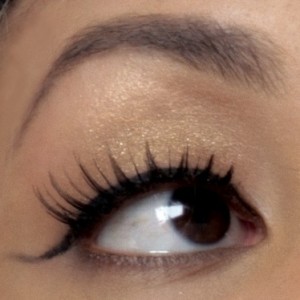 More and more often I hear comments from healthcare professionals that could make an eyebrow arch almost higher than humanly possible. I'm going to lay it out flat for you, no matter how uncomfortable it might be to read.
More and more often I hear comments from healthcare professionals that could make an eyebrow arch almost higher than humanly possible. I'm going to lay it out flat for you, no matter how uncomfortable it might be to read.
This is one of those crucial conversations I wish I could have in person with a lot of people but will likely not get the chance.. In lieu, I do hope for constructive dialog in the comments.
It's taken me a long while to sit and write this because it's difficult for me to put myself in the shoes (and it's impossible to put myself in the the skin) of the practitioners I'm writing about. I have been in the minority living in other countries, but I'm a white female - I have experienced machismo, but never racial discrimination to my knowledge.
I sat in a diner with a young nurse, out of college a few years, with dreams of a next step as a nurse practitioner. Her eyes lit up as she talked about the education she got everyday at the hospital. Trauma, critical care, incredible recoveries. It excites her and motivates her to learn more. And then she got down to what we had agreed to meet to talk about over a late night snack. The sparkle faded from her eyes...
Don't come in my room, no nigger is going to touch me.
Others are less vulgar, simply stating they want a 'different' nurse.
During the conversation, she said she could count on one hand the amount of black healthcare professionals on staff at largest hospital in a county, with a black population of just 3.4% (Luzerne County 2010 Census). It's touchy to say the least. Leadership and co-workers don't seem to know how to effectively deal with patients who act inappropriately. They try their best to shield her by switching staff around but it's hurtful and digs at her self-esteem to know she worked so hard to get where she's at and then has to face degrading ignorant patients who would benefit from her talent and care to help them heal.
The Patient is Always Right?
Apparently patient orientation doesn't cover non-harassment and there are no repercussions for discrimination in this situation. In what other industries do companies deal with people acting in a discriminatory manner toward their employees in this way? At most businesses, acustomer that treats an employee that waywould be asked to leave or escorted to the door and told not to return.
Hospitals seemingly just shuffle people around until the patient is happy.
Whether its racist remarks from patients, problems with culturally insensitive co-workers or being passed up for a promotion because of your race or gender, the key is to stay cool and know your rights. ~Ruth Carol
Combating Bias in the Nursing Workplace is a feature article at MinorityNurse.com. It provides a very insightful look at patient and co-worker relationships regarding race, foreign and non-native English speaking healthcare workers, and dealing with other scenarios which are uncomfortable and sticky.
The author, Ruth Carol, suggests trying to ascertain the patient's intent and the asks, 'Did the patient make a direct and obvious derogatory comment? Or did he or she seem frustrated or confused and blurt out a culturally insensitive remark unaware of a more appropriate thing to say?'
When it comes to employment or employer based discriminatory issues, there are proper channels address them through to includeTitle VII of the federal Civil Rights Act of 1964.
When it comes to patients,I suggest it's time for healthcare providers to put some parameters around what acceptable behavior is. My idea of dealing with an inappropriate patient would be, "If you don't allow our well qualified staff to treat you we'll be happy to arrange an ambulance to take you to the destination of your choice."
What do you think?
Leave a Reply